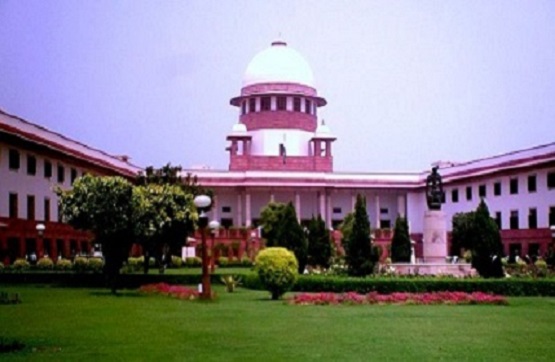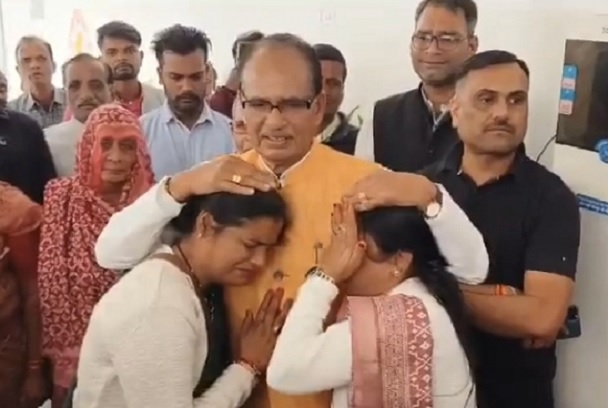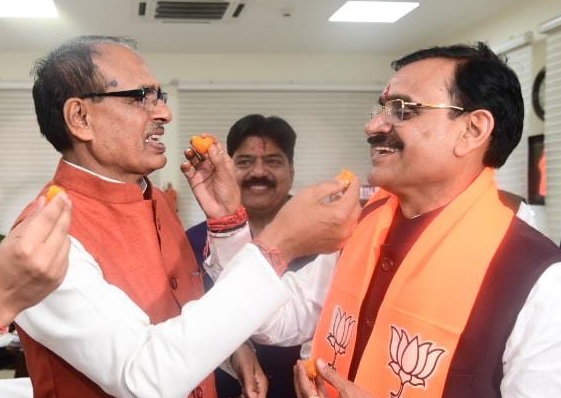Hate speech: India must strengthen law, ensure high conviction rate to tackle hate speeches, hate crimes

Shahid Parvez Sayed
NewsBits.in
The Constitution is indeed a living document that Dr. B.R. Ambedkar envisioned to be updated periodically to address the evolving challenges of our society. In light of the thousands of hate crimes occurring on Indian soil each year, with perpetrators adopting new modus operandi and techniques, it is crucial that we respond effectively.
Hate crimes in India are often fueled by hate speech, which spreads through personal conversations, social media, and newsrooms. It is alarming that our laws do not define hate speech or acknowledge its impact. Despite numerous hate crimes resulting in devastating consequences, the political class seems reluctant to bring about meaningful change. This reflects the collective consciousness of the nation, and future generations will likely view this period critically.
Some of us who took up law profession as a means to right the wrongs in society find it very frustrating that there are not adequate laws to tackle a bleeding tumor like hate crimes in India. This problem has plagued India since its partition in 1947and has only worsened over time. It remains unclear why comprehensive legislation to combat this menace has not been enacted by Indian lawmakers.
In contrast, the United States has continuously strengthened its anti-hate crimes laws, including the Civil Rights Act of 1968 and subsequent legislation in 1994, 1996,2009, 2015, 2021, and 2022. These laws aim to protect vulnerable citizens, with recent examples such as the COVID-19 Hate Crimes Act of 2021 and the Anti-Lynching Hate Crime Act of 2022. Additionally, each state within the United States has its own laws against hate crimes
When the attacks against Asian American increased in the wake of COVID 19 pandemic, the Congress acted swiftly and passed Covid 19 Crimes Act 2021. On the eve of signing that bill into law President Biden said ‘ Hate has no place in America – and I look forward to making that clear this afternoon by signing the COVID-19 Hate Crimes Act into law', said President Biden on May 20, 2021
‘Hate has no place in India’. How you wish the political bosses of India utter these lines from the Red Fort, for a change!. Now let's take a look at the existing aws against hate speech and hate crimes in India:
While the US has a dozen or federal laws and many state laws and policies to control and punish hate crimes, India that has more than three times US’ population has only 5 laws on its books which were written by Macaulay 160 years ago and amended 50 years ago and they are:
1. Sections 153A and 153B of the IPC: Punishes acts that cause enmity and hatred between two groups.
2. Section 295A of the IPC: Deals with punishing acts which deliberately or with malicious intention outrage the religious feelings of a class of persons.
3. Sections 505(1) and 505(2): Make the publication and circulation of content which may cause ill-will or hatred between different groups an offence.
4. Under Representation of People’s Act. Section 8 of the Representation of People’s Act, 1951 (RPA): Prevents a person convicted of the illegal use of the freedom of speech from contesting an election.
Sections 123(3A) and 125 of the RPA: Bars the promotion of animosity on the grounds of race, religion, community, caste, or language in reference to elections and include it under corrupt electoral practices.
Recommendation of the law commission
In the case of Pravasi Bhalai Sangathan v. Union of India in the Hon'ble Supreme Court, the petitioner Pravasi Bhalai Sangathan wanted the state to take to pre- emptive actions against the makers of hate speech. Fearing, judicial overreach the Supreme court did not get into that but instead requested the Law Commission of India to assess whether it was necessary to define hate speech and provide recommendations to Parliament to enhance the Election Commission's authority in curbing the problem of hate speeches, regardless of when they are made.
Following this directive, the Law Commission under the chairmanship of Honorable Balbir Singh Chauhan conducted a study on the existing laws that restrict hate speech in India. The Law Commission of India painstakingly worked three long years and did in depth analysis of the laws prevailing in other democracies like UK, Denmark, Austria,Australia, Estonia, Sweden, Canada, South Africa and the USA before making its recommendations.
The United States takes no prisoner when it comes to safeguarding its citizen rights to free speech via amendment no 1 and in that zeal to protect the freedom of expression even allows hate speech. But in a land mark case called Chaplinsky V New Hampshire excluded what it called ‘low value speech’ from protection under first amendment.
It held that the certain forms of speech like fighting words, obscenities, certain profane and slanderous speech do not enjoy the first amendment protection and must be prosucted. In India if we apply the principle of low value speech, most political speeches will lose their stings resulting in a more civilized conversation.
After a comprehensive examination of the issue and analysis of the international legal framework, the Commission proposed amendments to the Indian Penal Code. First of all The Law commission established the criteria for establishing hate speech, and they are as follows:
1 – Incitement : A speech can be classified as hate speech if it has an intention to incite the public to discriminate the others based on race, caste, gender, religion, etc. The supreme court of India in Shreya Singhal v. Union of India observed that the speech must amount to incitement in order to be restricted.
2 - The extremity of the speech: The hate speech must be offensive and produce extreme emotions.
3 - Status of the author of the speech: As Per the Europen human rights Council, the power of the author of speech is an important element in determining the legality of hate speech.
4 - Status of the victim of the speech: The status of the targeted audience is also important to determine whether the speech can be restricted or not.
5 -Potentiality of the speech: The potentiality of speech and how much impact it has on the minds of the public is also an important element. In Ramesh v. Union of India, AIR 1988 SC 775 Supreme Court examined the validity of the restriction based on the potential of the movie to impact the audience.
6 - Context of the speech: Every seemingly hate speech may not Every be termed as a hate speech. The context in which the speech was made is essential in determining its illegality. The Law commission in its report no 267 recommended the following amendments to the Indian Penal Code 1860.
I: Prohibiting incitement to hatred by inserting section 153C In the IPC:153 C: Whoever on grounds of religion, race, caste or community, sex, gender identity, sexual orientation, place of birth, residence, language, disability or tribe -(a) uses gravely threatening words either spoken or written, signs, visible representations within the hearing or sight of a person with the intention to cause, fear or alarm; or (b) advocates hatred by words either spoken or written, signs, visible representations, that causes incitement to violence shall be punishable with imprisonment of either description for a term which may extend to two years, and fine up to Rs 5000, or with both;.
II: Insertion of new section after section 505 i.e. (505 A). Whoever in public, intentionally on grounds of religion, race, caste or community, sex, gender, sexual orientation, place of birth, residence, language, disability or tribe-words, or displays any writing, sign, or other visible representation which is gravely threatening, or derogatory; (i) within the hearing or sight of a person, causing fear oralarm, or; (ii)with the intent to provoke the use of unlawful violence, against that person or another, shall be punished with imprisonment for a term which may extend to one year and/or fine up to Rs 5000, or both.
In addition it recommends amendments to the first schedule of the Code of Criminal procedure 1973 (CRPc) by recommending the procedures for prosecuting such crimes and if those cries are cognizable and or bailable.
What's the Way Forward
To move forward, it is imperative that the proposed amendments be seriously considered and enacted into law. Strengthening hate speech legislation, enhancing the conviction rate, raising awareness, supporting victims and promoting a more inclusive and tolerant society are crucial steps towards combating hate crimes and protecting the rights and dignity of all individuals in India. We owe that to the very first line of the preamble of the Indian constitution!
[In this series of articles, we looked at the socio economic and humane aspects of hate crimes, earlier. In this second part, we will analyse what has been done and what steps can be taken legally to stop and control the menace of hate crimes in India.]
[Shahid Parvez Sayed is a practicing High Court advocate; the views expressed are personal]
READ: Time for a new law to stop hate crimes, lynching incidents in India
References
1: The law commission report no 267
2: https://www.justice.gov/hatecrimes/laws-and-policies
3: https://indianlawwatch.com/issue-of-hate-speech-law-commission-report-no-267/










